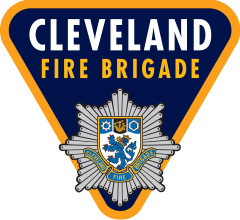Reducing unwanted fire signals
Automatic fire alarms help keep premises and their occupants safe by providing an early warning of a possible fire and enabling evacuation. But the vast majority of signals from automatic fire alarms are not actual fires. When a fire alarm goes off, as a result of anything other than a real fire, this is considered to be an unwanted fire signal.
Fire alarm and detection systems react as a result of either an increase in heat or the presence of smoke. Unfortunately, they also react to things such as steam, vapes, aerosol sprays and cooking fumes.
Consequences of unwanted fire signals:
- Ties up fire engines and personnel who could be attending real emergencies
- Can cause disruption to businesses effecting efficiency, profitability and services
- Frequent false alarms cause staff to become complacent, less willing to act quickly when hearing alarms
- Repeated calls may result in formal action being taken by Cleveland Fire Authority
How to avoid unwanted fire signals:
- Ensure the fire risk assessment for your premises is up-to-date and reflects conditions in your premises
- Ensure your system has been properly designed and installed, and is managed and maintained
- Ensure you have people designated to take responsibility for managing and maintaining your system
- Ensure if evacuation is part of your fire safety strategy this is regularly practised and staff are aware
- Ensure your procedures include the designation of specific staff to check for signs of a fire, when the fire alarm sounds, and if fire is found they call the Brigade using the 999/112 system
- Ensure false alarms are recorded in the fire alarm log book, including actions taken to prevent a repeat
Responding to false alarms
We are changing the way we respond to Automatic Fire Alarms (AFA) which have not been caused by a fire. The introduction of the cost recovery policy follows extensive public consultation and will be introduced 1 April 2021.
Cleveland Fire Brigade will not attend Accidental Fire Alarm’s to low and medium risk premises, unless a backup call is received from the premises via the 999 system, confirming there is a fire. If the call is received via an Alarm Receiving Centre (ARC) they will need to confirm that no persons are present on the premises to investigate the cause of the alarm prior to the Brigade mobilising a fire engine.
High risk, special risk and residential properties will receive a fire engine to investigate the cause of the alarm. Some businesses may be exempt from the changes if there are exceptional circumstances. Any request for an exemption due to significant risk must be made by email to our Fire Engineering department.
There is no requirement for any Fire and Rescue Service to respond to calls originating from an AFA system. It is the responsibility of the organisation to ensure they have an appropriate management system in place for actions to be taken as a result of the fire warning system actuating.
Legislation introduced in February 2012 amended the Fire and Rescue Services Act 2004 allowing authorities in England to levy a charge in certain circumstances:
- There is a report of a fire;
- The premises are not domestic premises;
- The report is false;
- The report is made as a direct or indirect result of warning equipment having malfunctioned or been miss-installed; and
- There is a persistent problem.
Cleveland Fire Authority has determined that a persistent problem is when premises reach more than four occurrences in a rolling twelve months. This applies to commercial premises and other premises regulated by the Fire Safety Order. The £345 charge (excluding VAT) will be applied on the fifth AFA incident resulting in an UWFS in a rolling 12 month period. We will request the charge from the responsible person for the premises.
Once a premise has become chargeable all further attendance will generate a charge until the number of attendance reduces to less than five within a 12 month period.





